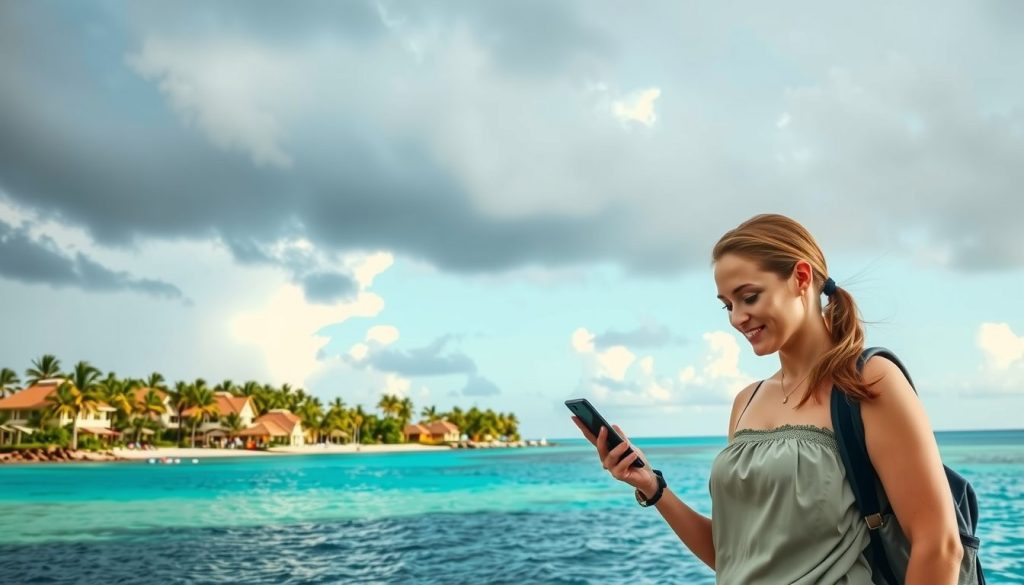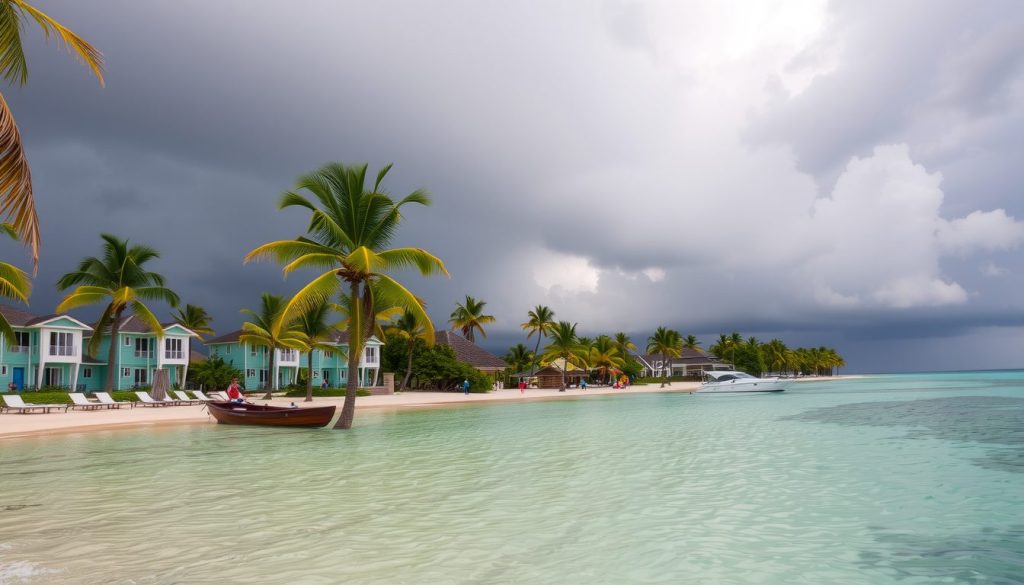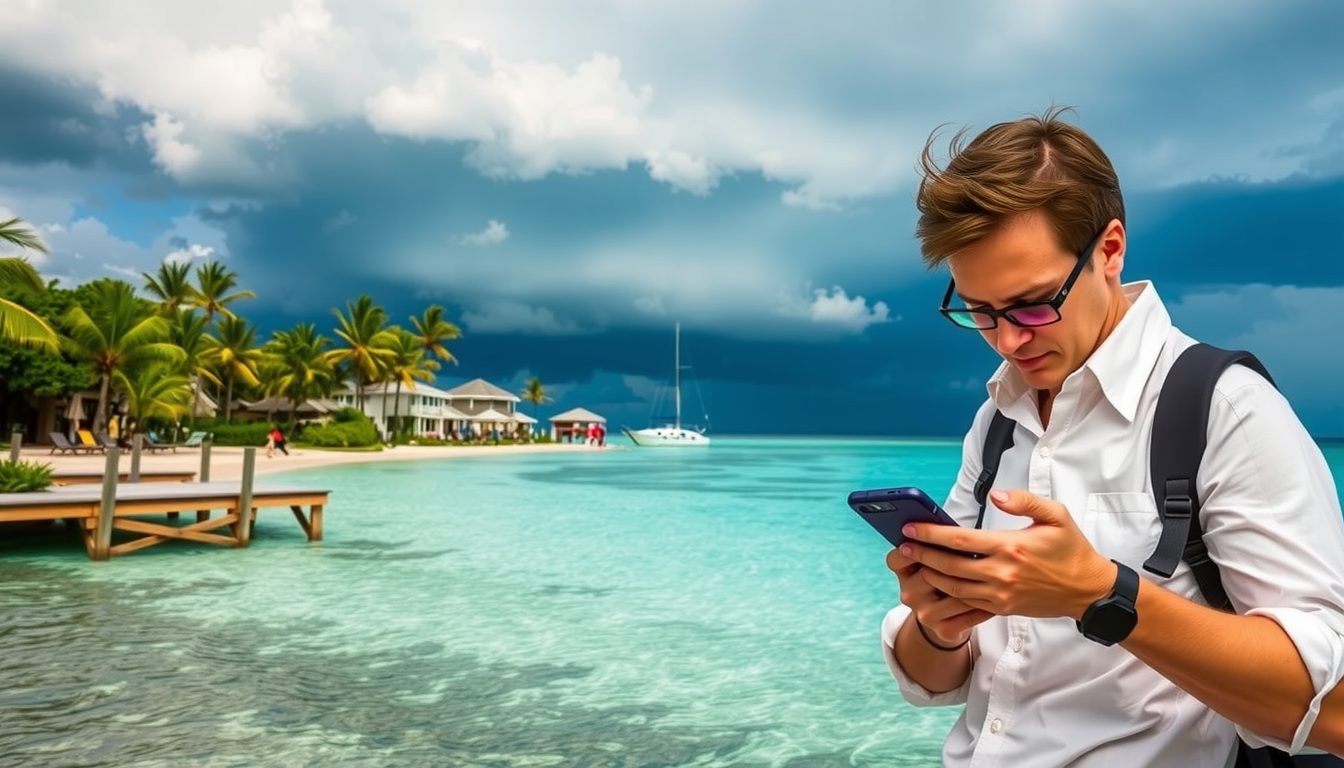A hurricane doesn’t have to ruin your Caribbean resort vacation.
With the right preparation, you can turn disruption into refunds, rebooking, and peace of mind.
Storms are part of coastal travel, but they don’t have to mean panic or lost money.
This guide shows how to protect your prepaid costs, act fast when weather hits, and recover with confidence.
Understand the Season Before It Steals Your Vacation
Hurricane season is not a vague threat — it’s a defined window from June through November, with August and September carrying the highest risk.
While the odds of a storm hitting your exact island during your exact week are slim, the consequences of being caught unprepared are severe: canceled flights, resort closures, and days without power.
Knowing the rhythm of the season allows you to plan with confidence.
Early season (June–July) and late season (late October–November) are calmer, while December–April is the safest window overall.
By treating timing as a lever, you can reduce exposure and travel with peace of mind.
- Peak exposure: August–September storms are most frequent.
- Lower‑risk windows: June–early July and late October–November.
- Geography matters: Southern islands (Aruba, Bonaire, Curaçao, Trinidad & Tobago) are less storm‑prone.
- Resort policies: Ask for written hurricane policies before booking.

Choose Islands and Resorts That Keep You Safe, Relaxed, and Storm‑Ready
Not all destinations are created equal when it comes to storm risk.
Geography is your first defense: southern islands sit outside the main hurricane belt and rarely experience direct hits.
Even within higher‑risk zones, resort infrastructure makes a difference.
Large, well‑funded resorts often have backup power, water systems, and documented hurricane policies that include relocation or refunds.
By choosing wisely, you can enjoy your trip without constant anxiety about the forecast.
Selecting the right island and resort is about more than scenery — it’s about peace of mind.
- Lower‑risk picks: Aruba, Bonaire, Curaçao; Trinidad & Tobago.
- Resort due diligence: Continuity plan, outage contingencies, relocation/refund terms.
- Outcome: Confidence that even if storms form, your resort has a plan.
Book Flexible Options That Put You Back in Control When Weather Strikes
Flexibility is the single most powerful tool you can buy.
Nonrefundable fares and strict room rates lock you into brittle plans, while refundable or change‑fee‑free options give you the ability to pivot.
Airlines often issue waivers when storms are forecast, but only flexible bookings guarantee you can act without penalty.
Hotels with transparent hurricane policies may offer credits or refunds if a named storm is imminent.
By documenting all terms at purchase, you create a paper trail that ensures claims are honored.
Flexibility is freedom — and during storm season, it’s priceless.
- Flights: Refundable fares or flexible change policies.
- Hotels: Clear cancellation windows; documented hurricane policy.
- Backups: Alternate island/resort and date shift pre‑identified.

VisitorsCoverage — Guard Your Prepaid Resort Nights From Sudden Closures
When a storm forces a resort to close, prepaid nights can vanish without protection.
VisitorsCoverage is your safeguard.
As a US‑based insurtech marketplace, it aggregates trip cancellation, interruption, and medical policies, including riders for resort closure.
By comparing multiple carriers, you can find policies with explicit closure/interruption language and per‑night caps that match your exposure.
Once purchased, policies are issued digitally, and you should immediately save the hotline number.
- What it is: Marketplace for cancellation, interruption, and medical policies with closure riders.
- Why recommended: Efficient comparison of closure/interruption language and per‑night caps.
- How to buy: Run quotes, select closure riders, purchase digitally, save hotline.
- Decision filters: Explicit closure clause; per‑night caps; documentation requirements.
Ekta — Secure Peace of Mind With Medical and Evacuation Protection
Storms don’t just disrupt flights and resorts — they can create medical emergencies.
Island hospitals may have limited capacity, and evacuation can be costly without coverage.
Ekta specializes in high medical limits, evacuation coordination, and guaranteed hospital payments, reducing out‑of‑pocket exposure and speeding care.
This makes it the backbone of your medical/evacuation module.
Once purchased, register traveler names, store hotline contacts, and carry both digital and printed proof of coverage.
- What it is: Global insurer specializing in medical coverage and evacuation.
- Why recommended: High medical limits and guaranteed payment reduce risk.
- How to buy: Purchase via portal or broker, register travelers, store hotline contacts.
- Decision filters: Medical limits, evacuation caps, activity coverage.
Insubuy — Transform Delays Into Covered Comfort Instead of Stress
Delays are inevitable during storm season, but they don’t have to mean sleeping on airport floors.
Insubuy is a broker that simplifies sourcing delay and interruption riders across carriers.
It clarifies per‑day caps and delay triggers, and provides licensed agent support for claims.
With the right rider, you’ll be reimbursed for meals and hotels during delays, and refunded for unused nights if you must cut a trip short.
Delays become manageable, even comfortable, when you have the right coverage.
- What it is: Broker for delay and interruption riders across carriers.
- Why recommended: Clarifies per‑day caps and delay triggers; agent support for claims.
- How to buy: Compare riders, purchase, download documents, note claim timelines.
- Decision filters: Minimum delay hours; per‑day hotel/meal caps; reporting requirements.
Compensair — Claim the Airline Cash You Deserve After Disruption
Airlines owe compensation for delays, cancellations, and denied boarding — but most travelers never claim it.
Compensair specializes in recovering this money, separate from insurance reimbursements.
By submitting your boarding passes, cancellation notices, and receipts, you can unlock cash that airlines are legally obligated to pay.
Compensair ensures you don’t leave money on the table when storms disrupt your flights.
- What it is: Service that pursues airline compensation for delays/cancellations.
- Why recommended: Recovers statutory or contractual payouts separate from insurance.
- How to buy: Submit disruption evidence online; retain boarding passes, notices, receipts.
- Decision filters: Route eligibility; required documentation; filing deadlines.

Respond Fast When the Storm Hits to Stay Ahead of the Panic
When a storm disrupts your trip, speed and documentation are everything.
Resorts, airlines, and insurers all require proof and timely action.
Acting early keeps you ahead of bottlenecks and ensures you’re reimbursed.
The difference between panic and control comes down to how quickly you act.
- Contact insurer hotlines immediately with policy numbers ready.
- Document everything: boarding passes, cancellation notices, outage confirmations, receipts.
- Follow resort instructions for evacuation or relocation.
- Keep digital and printed copies of all policies and bookings.
Recover Costs and Rebook With Confidence After the Storm Passes
The storm may pass, but recovery is where preparation pays off.
With the right stack, you can reclaim prepaid costs, secure airline compensation, and rebook without starting from scratch.
Recovery becomes a reset — not a setback — when you’ve layered the right protections.
- VisitorsCoverage: Refunds unused nights if resort closes.
- Ekta: Covers medical bills and evacuation if needed.
- Insubuy: Reimburses meals/hotels during delays.
- Compensair: Pursues airline payouts.
- Resorts: Many issue credits or certificates for future stays.
Real‑World Scenarios That Prove Smart Planning Beats Panic Every Time
Examples matter because they demonstrate how preparation translates into real outcomes.
A family, couple, or solo traveler can all face different disruptions, but the right mix of flexibility and insurance turns chaos into manageable steps.
These scenarios illustrate how the strategies outlined above work in practice, showing that planning ahead doesn’t just reduce stress — it creates confidence.
- Family pivots from Bahamas to Curaçao using refundable fares and VisitorsCoverage interruption.
- Couple cancels with CFAR when forecasts tighten, recovering most costs.
- Solo traveler uses Insubuy delay coverage for hotel/meals during a 12‑hour airport delay.
- Group evacuated with Ekta’s help while VisitorsCoverage refunds unused nights.
FAQ – Reschedule Your Caribbean Resort Trip with Confidence
What’s the first step if a storm disrupts my resort trip?
Call your insurer’s hotline immediately with your policy number ready.
Explain the disruption clearly and ask for next steps.
Simultaneously, request written confirmation from your resort or airline about the closure, cancellation, or delay.
This documentation unlocks your ability to file claims quickly and avoid delays.
For example, if your resort loses power and closes, a written outage notice plus your VisitorsCoverage policy ensures reimbursement.Can I get my money back if my resort closes?
Yes, if you purchased interruption coverage with a closure rider.
VisitorsCoverage policies refund unused nights when a resort closes due to a named storm.
Many resorts also issue credits or certificates for future stays.
Always request written documentation of the closure to support your claim.
Without it, even valid claims may stall.What if I need medical evacuation during a storm?
Medical evacuation is one of the most expensive and overlooked risks of storm-season travel.
If you’re injured or fall ill during a hurricane, local hospitals may be overwhelmed or under-equipped.
Ekta specializes in evacuation and guaranteed hospital payments, which means you won’t be left negotiating costs in a crisis.
The moment you need care, call their hotline.
They coordinate transport, cover costs up to your policy limit, and ensure you’re moved to a facility that can handle your needs.
Keep all medical records, discharge paperwork, and receipts to streamline your claim.How do I handle flight cancellations caused by a storm?
Flight cancellations are the most common storm-related disruption.
Contact your airline immediately for rebooking or change waivers.
Act fast—seats disappear quickly once alerts go out.
Next, file with Insubuy for delay coverage to reimburse meals and hotels while you wait.
Finally, submit your case to Compensair to recover airline compensation.
Keep boarding passes, cancellation notices, and receipts to support both claims.What documents should I keep to file a successful claim?
Documentation is the backbone of successful travel insurance claims.
Keep your policy numbers, hotline contacts, booking receipts, boarding passes, cancellation notices, medical records, and outage confirmations.
Digitize everything—take photos of receipts, save PDFs of confirmations, and back them up to cloud storage.
For example, if your resort closes mid-trip, a written outage confirmation plus your VisitorsCoverage policy number ensures a smooth claim.
If your flight is delayed, boarding passes and airline notices support both Insubuy and Compensair claims.
Without documentation, even valid claims can be denied.
